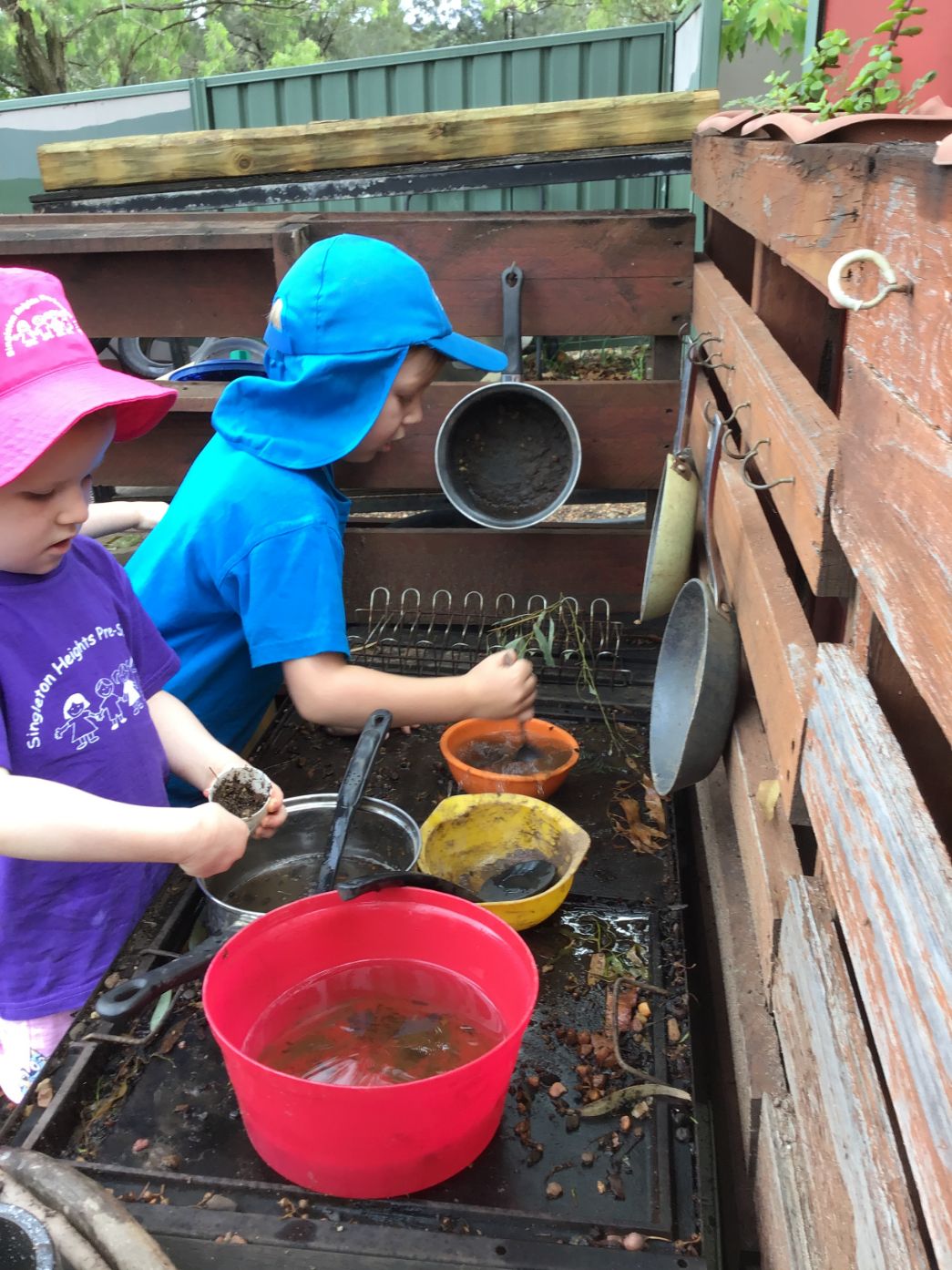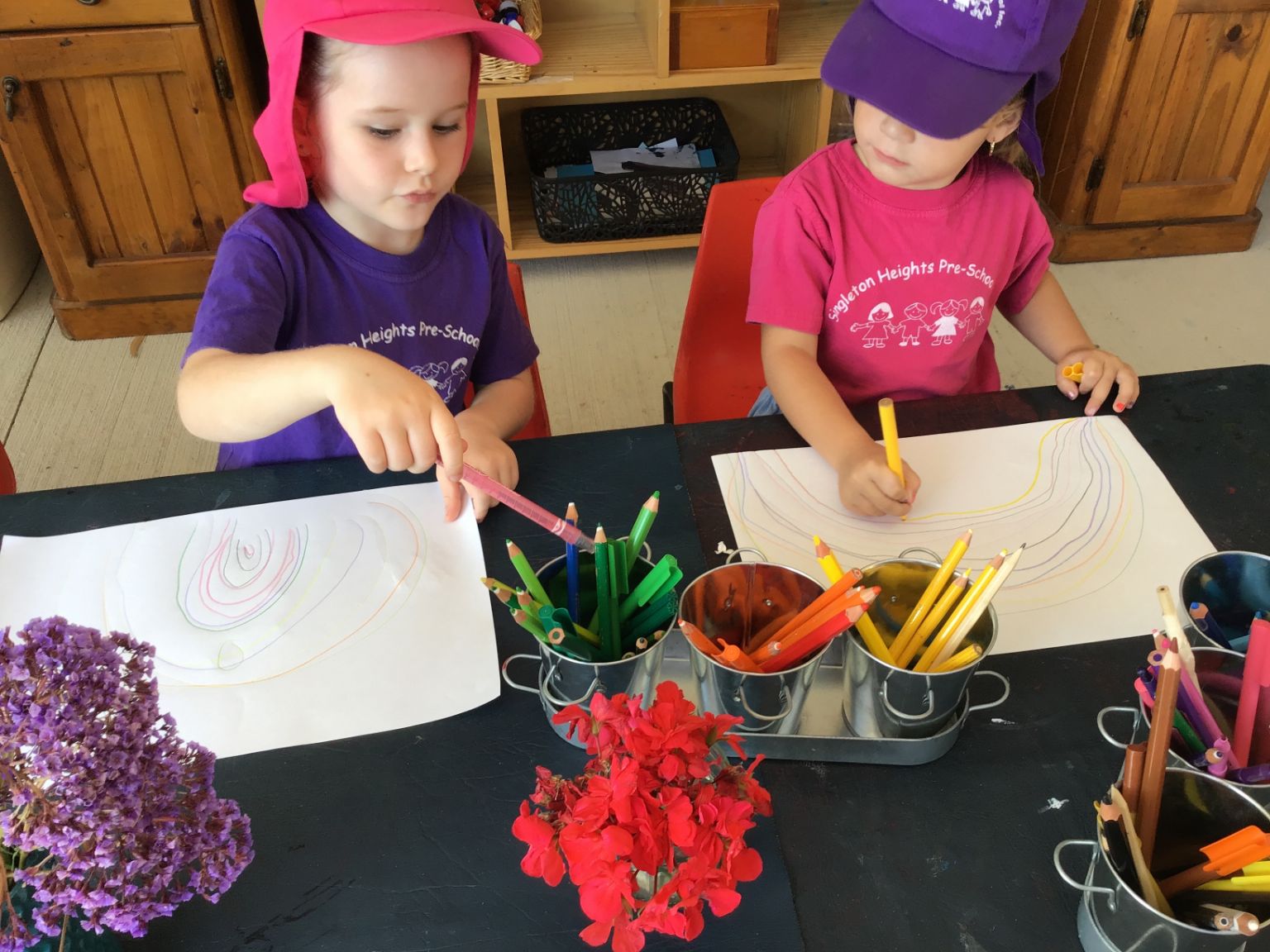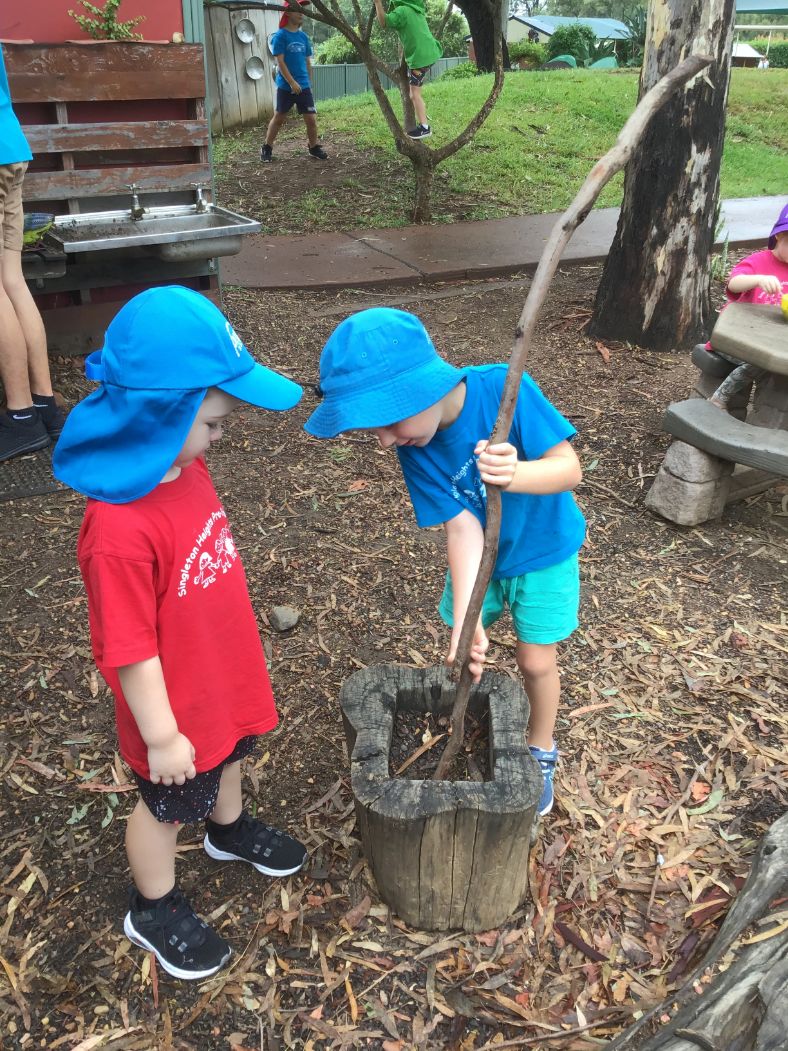Play & Development
Learning Through Play
Within the context of play, there exists a myriad of learning opportunities. Children explore social relationships, contribute ideas and take on the ideas of others. Play provides the opportunity to experiment, explore, discover and to solve problems. As children play there are opportunities to talk, listen and explore language. There are also opportunities to relax, have fun, experience and express joy.

Childhood Development
At each developmental stage there are tasks to be mastered. An appropriate curriculum provides opportunities for children to choose activities allowing spontaneous skill practice and to develop skills. We aim to develop:
Self-identity, confidence, self-esteem and independence.
Communication and literacy skills.
Creativity, dramatic play and music skills.
Critical thinking and problem solving.
Cultural awareness.
Environment understandings including recycling and sustainability.
Health and physical development.
Technology and numeracy.
Social/emotional skills.
A sense of belonging.
Value and acceptance of diversity.
Appreciation of others.
Self-help skills.
School readiness and more.

Learning Environment
Research tells us that the environment has a crucial and formative impact on the way children’s brains develop. We believe that our learning environment should support the development of children who can make choices, think independently, accept challenges, explore ideas, appreciate beauty and diversity, ask questions, feel nurtured, safe, and well cared for. It should invite curiosity and be a source of pleasure and enjoyment within a social play-based context.
We aim to place an equal value on learning through play that takes place both indoors and outdoors. We believe that a gentle rhythm to the day and routine, helps create a sense of security. We also believe in an environment that is responsive to a child’s own rhythm, interests, ideas and contributions.
Outdoor Play Areas:
Established trees, one being a favourite for climbing and several others, housing bird nests which are revisited each year.
Outdoor classroom that is used for a variety of play scenarios.
Fairy garden.
Vegetable garden and green house.
Gravel patch.
Camp area and camp kitchen with a rainwater tank supplying water for use in the children’s play.
Woodwork shed.
Bike track.
Mountain slide.
Climbing equipment with swings, trapeze, monkey bars, scramble net, and flying fox.
Two large sandpits.
Fishing boat.
Yarning circle.
An outdoor art area.
Two large, covered outdoor verandas.
